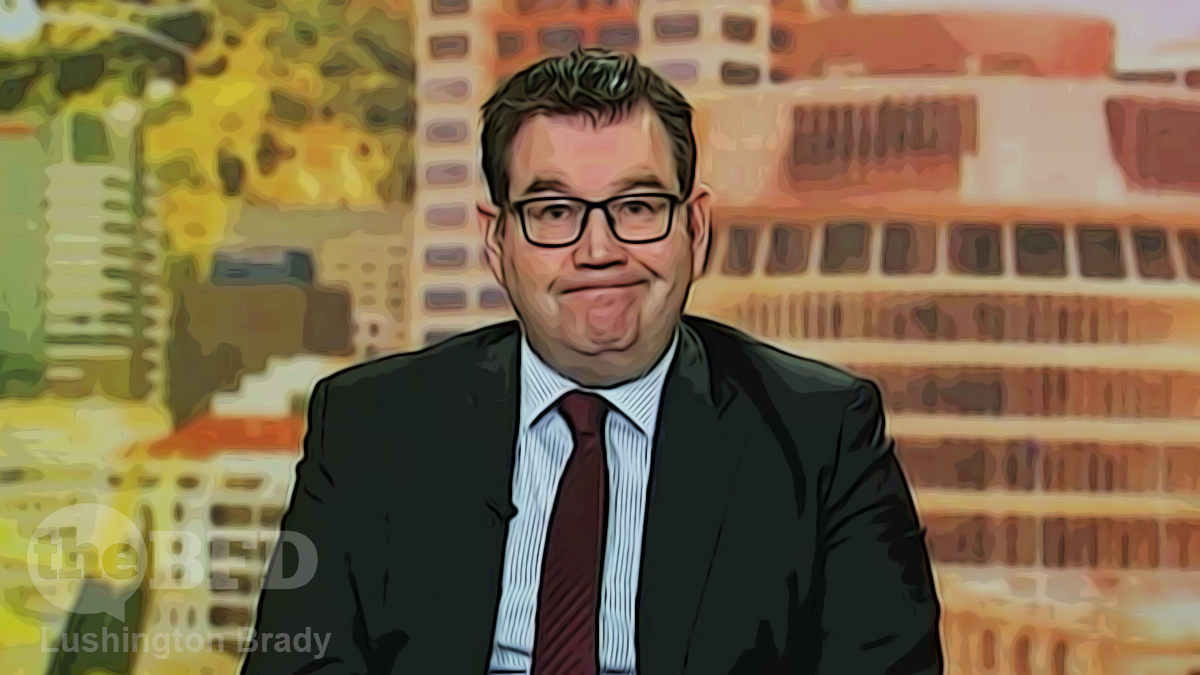Grant Robertson’s Hail Mary budget, ostensibly designed to save the election for Labour, has shown that he learnt all his book-keeping sitting on the knee of his fraudster father. What he has delivered is more debt, more corporate welfare, higher taxes, more subsidies for EV owners, billions of dollars on infrastructure in order to save the Hawkes Bay electorates and a good deal of hopium and heroic assumptions.
The Taxpayers’ Union has summarised the budget well:
Here are the things the spin doctors in the Beehive are highlighting:
- Extending 20 hours ECE to 2-year-olds (eventually costing c.$380m/year)
This is the closest thing this year’s budget has to an electoral sugar hit. For those with young families and working, it’s a boost to get back to work. A less expensive way of bringing down childcare costs would be to bring staff to child ratios in line with other OECD countries.
- Scrapping the $5 prescription co-payments for everyone (c.$175m/year)
The Government argues that this will relieve pressure on the health and care system by ensuring more people collect their prescriptions and fewer have to go into hospital.
- Free public transport for kids – half price for teenagers (c.$80m/year)
Children under 13 will get buses, ferries, and trains for free with under 25s getting half-price.
- Cyclone recovery, infrastructure, and “National Resilience Plan” (allocating $6b capital over the four-year forecast period).
As expected, there is large capital expenditure allocated to Auckland flooding and Cyclone Gabrielle recovery. The Government has also announced a “National Resilience Plan”.
- 3,000 additional public housing places ($3.1b, $465m operating over the four-year forecast period)
This is a mix of community, Maori, and temporary (cyclone related) housing.
- Investment in education to build more schools and classrooms, reduce class sizes, increase teacher pay and tackle truancy ($1.3b capital, $3.6b operating over the forecast period)
Populist policies such as reducing class sizes haven’t been shown to have much of an impact on attainment and paying teachers more is all well and good if they are high performing, but it means the bad teachers get paid more too.
The Gimmicks
It is usual in budgets to be crammed full of headline-grabbing gimmicks to oil the political squeaky wheels. This year’s budget is sadly no different:
- “Cheaper energy bills” i.e. subsidies for heat pumps, insulation installations, and LED light bulbs
The Government is expanding the “Warmer Kiwi Homes Programme” to provide 100,000 new heating and insulation installations, 7,500 hot-water heat pumps and 5 million LCD light bulbs. That’s nearly one each!
Supporting the growth(corporate welfare) of gaming sectorThe Government is picking winners by announcing it’s doing to video games what it does already for international movie studios: Competing against Australia for economically dubious ‘rebate’ subsidies.
- More electric vehicle charging infrastructure
- “Investments” in Green Hydrogen and subsidies for trucking companies to buy electric trucks
Yet again, the Government repeats the claim that increasing the use of electric vehicles “reduces emissions”. Of course, that’s not true. Any decrease in transport emissions are simply made available under our fixed cap emissions trading scheme for other areas to use. These subsides simply make climate change mitigation more expensive than it need be.
- Improving data on impacts on climate change, including data on how climate change impacts Maori.
What Chris Hipkins doesn’t want the media to focus on
As part of Ruth Richardson’s Fiscal Responsibility Act, since 1993 Treasury has been required to prepare independent fiscal and economic forecasts twice a year (and just prior to an election).
So the first thing we do when we get into the Budget lockup is to check the headline forecasts against the half-year update back in December.
The numbers don’t lie
Despite better GDP and employment forecasts, gross debt forecasts are skyrocketing.
The debt figures are starting to look ugly. Grant Robertson’s speech would have you believe that the Government books are rosy. Yes, Treasury are no longer forecasting a recession, and unemployment is now forecast to peak less at 5.3 percent next year (compared to December’s forecast of 5.5 percent), but that makes the debt situation even more questionable.
Back in December, Treasury forecast gross debt to be $193 billion ($98,229 per household) or 39.9% of GDP by 2027. Just six months later, the same officials are now forecasting gross debt to be $214.5 billion ($109,171 per household) or 44.3% of GDP. That is an alarming change for just six months given the economy is not expected to be as bad between now and then.
The elephants in the room: the tax hikes that Grant Robertson insists aren’t a tax hike
Do you have a family trust? So much for Chris Hipkins’ ‘no tax hikes’ promise. Tax hikes for 1 April 2024
Yesterday, Mr Hipkins was saying that today’s Budget would not be putting up taxes. Maybe Grant didn’t tell him, but today’s Budget puts up the trust rate from 33 cents in the dollar to 39 cents.
In his comments to media, David Parker tried to frame it in context of his recent ‘Nosey Parker’ report into the country’s uber wealthy. In reality, it will hit SME-business owners who own their family business via a family trust. For the uber wealthy, this change will incentivise keeping capital within companies (which will soon be paying a considerably lower company rate of 28%).
Do you own a car? Tax hikes for you in six weeks’ time ?
The Budget locks in tax hikes for motorists. From 1 July, fuel tax will be increasing 29 cents per litre. That will return to a situation where for many people (in particular, Aucklanders) more than half of the amount paid at the pump will be tax!
And for all the talk of helping those most in need, fuel taxes disproportionately hit the poor (who can’t afford electric vehicles), or those who live in rural areas.
So much for savings and reprioritisation! ??
For all of Grant Robertson’s recent show of promoting himself as some sort of fiscal hawk, the “Savings and Reprioritisation” section of his 154-page Budget Document amounts to half a page – and all of it has already been announced.
And of the $4 billion, a big chunk of it (c.$850m) is thanks to efforts of your humble Taxpayers’ Union: the dropping of TVNZ/RNZ merger, and the “re-focusing” (i.e. delaying) of Three Waters. You’re welcome, Mr Robertson!
Is a return to surplus credible?
The Government is making a lot out of the projection that it will return New Zealand to surplus in 2024/25. But the economists we spoke to in the lock up agree that this is very optimistic. It’s forecast to be just a surplus and assumes no more shocks (such as weather events). It also assumed that, like every year’s budget, future governments will spend less on new initiatives going forward. If you believe that, I have a bridge to sell you.
Taxpayers’ Union
This Government really has no idea about basic economics and how people react to incentives. Their next energy initiative will increase rents yet again. Even though there are subsidies for heat pumps, insulation installations and LED light bulbs, the true cost of all these will be passed on to tenants via rent increases. They can say that it won’t all they like, but that’s what will happen.
The same will go for the tax hikes on trusts. All those Mum and Dad investors with a couple of rental properties in their trust have now had a massive tax hike. They’ll want that back, and guess who is ultimately going to pay for it? Yep, renters, through increased rents.
As for the billions promised for housing and infrastructure, do they seriously want us to believe that despite their track record on housing and infrastructure; Kiwibuild, light rail to Auckland airport and a second harbour crossing, none of which have been built, or even started (or, if started, have demonstrably failed), that this time they’ll deliver on their promises?
They clearly think most of us are stupid. Then again the pandemic kind of proved that they are right in that regard. People really are stupid.
What really rips my undies though is the continued pouring of money into EVs and their smug rich owners. They can build more charging infrastructure all they like but all that is going to do is make them hit two immovable obstacles faster.
The first is the lack of investment in new generation capacity. Despite a massive push to have more and more elements of every day life reliant on the limited resources of electricity generation, there can never be enough. The second is the laws of physics, in particular the Fermi gap that is a fundamental inefficiency that no amount of technology can overcome.
The tax hikes are massive, especially the fuel taxes. This shows the wisdom of our members in signing up for our discount fuel package. From July 1 your fuel costs will escalate by another 26c per litre. Some of our members are getting savings of that magnitude. If you are wanting to save costs on fuel then you really should be looking at this.
When you look at how they are paying for all of this, it is basically through increased borrowing of eye-watering amounts. Treasury forecast gross debt to be $193 billion ($98,229 per household) or 39.9% of GDP by 2027 back in December. Just six months later, those same officials are now forecasting gross debt to be $214.5 billion ($109,171 per household) or 44.3% of GDP. That is an alarming change over just six months given the economy is not expected to be as bad between now and then.
If this budget doesn’t wake you up to the wanton economic vandalism of the Labour Party, then nothing will.

Help Fund Our NewsDesk
We are building a NewsDesk, hiring journalists and taking the fight to the mainstream media. Will you help fund our NewsDesk?
Registered before? Log in to use your saved details.
If you registered an account, please enter your details below to login. If this is your first time, proceed to the donation form.
Please share this article so others can discover The BFD.

